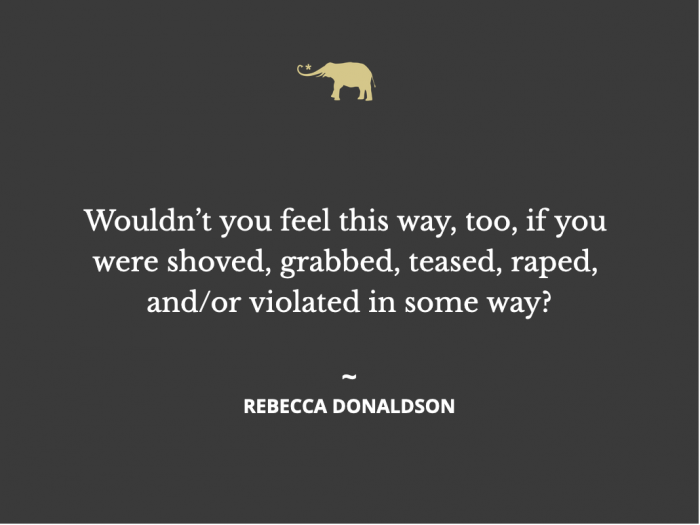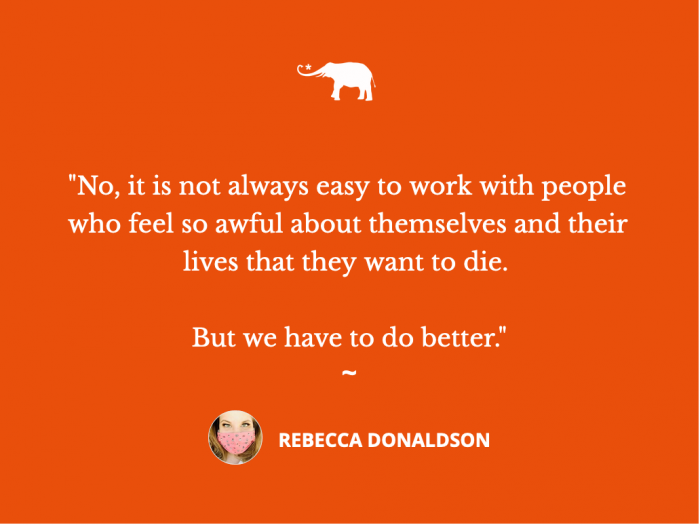*Editor’s Note: Elephant Journal articles represent the personal views of the authors, and can not possibly reflect Elephant Journal as a whole. Disagree with an Op-Ed or opinion? We’re happy to share your experience here.
~
There is an industry doing a lot of harm to people.
And it isn’t being spoken about much.
Try speaking out; you’ll likely be labeled or silenced.
I’m writing about the mental health field.
You’d think that people in distress would find comfort in seeking mental health support, but if you’re in a lot of distress, you’re likely to feel worse after seeking “help.”
Don’t cry too much.
Do not show how much pain you’re actually in.
Why do I write this? Because it’s the honest truth.
You might not be taken seriously if you’re too sad.
Instead, you might be labeled as having a “personality disorder,” and the provider will likely try to get you off of their caseload.
You can’t speak out about this either because just the mere fact of challenging them might be seen as part of this so-called disorder of your personality.
I imagine that if you voiced concerns, not surprisingly at all, you’d receive responses from privileged white men with large egos.
They might say something like:
“Sh*t or get off the pot.” “I hope you’re in treatment because, well, you seem like a Borderline.”
What exactly is a Borderline, you might ask?
From those I have spoken to, which are many, those who have been given this diagnosis are usually the following:
>> White
>> Young
>> Female
>> Someone who was abused as a child
>> An empath
>> A sensitive soul
>> An advocate against injustice
>> Someone who easily cries
>> Someone who experienced something bad or not quite right in their childhood
>> Someone who was treated badly at home, bullied, and/or abused
They probably feel as if they’re seen as “angry” or “overly emotional.”
Wouldn’t you feel this way, too, if you were shoved, grabbed, teased, raped, and/or violated in some way?
Wouldn’t you feel this way, too, if you were not shown love and attunement as a child?
For mental health providers to treat these individuals—who were often the outcasts in their families and schools—the way that they do is appalling.
It starts first with compassion.
It starts by realizing the effects of trauma, harassment, and neglect on people.
It starts by seeing all clients as people with unique stories.
These people are hurting.
I’m hurting.
Please never tell someone with lived experience (who is speaking out about something affecting many others) to “sh*t or get off the pot.” If you feel this way, you don’t belong in a healing profession.
To all those given this label, I want to hear your experience. It’s time for you to speak, and it’s time for professionals to listen.
~




Read 17 comments and reply